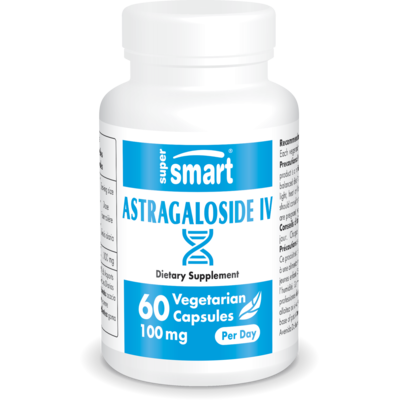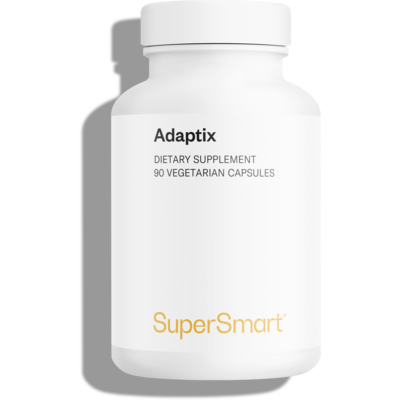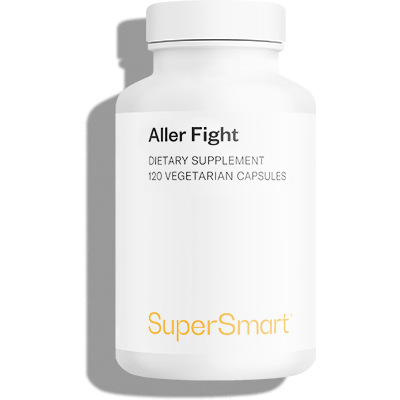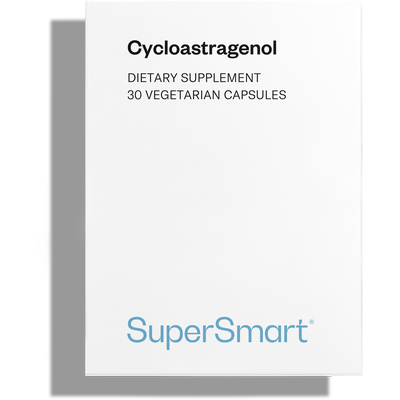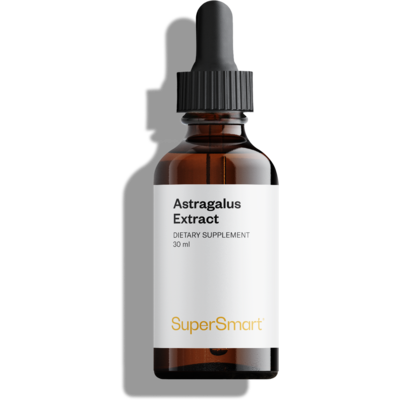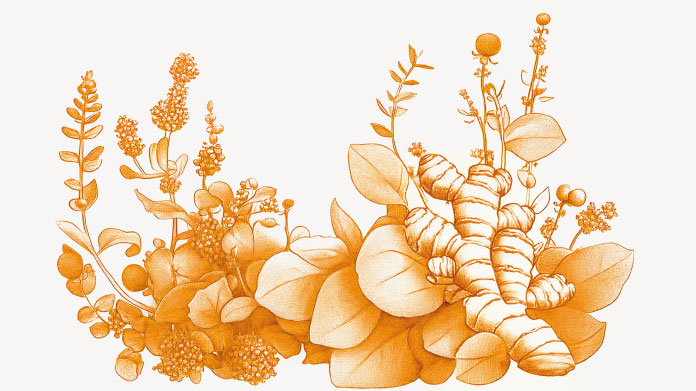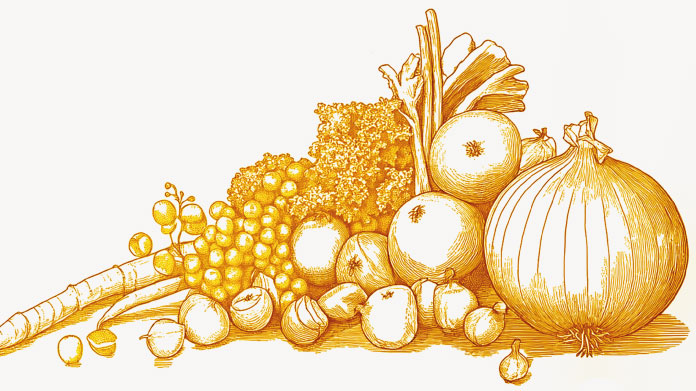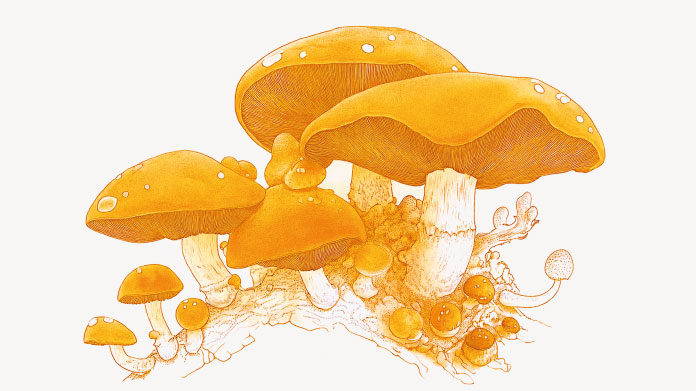What benefits do astragalus supplements actually offer?
Advances in scientific research are revealing the mysteries of astragalus. Discover just what this medicinal plant can do for you.
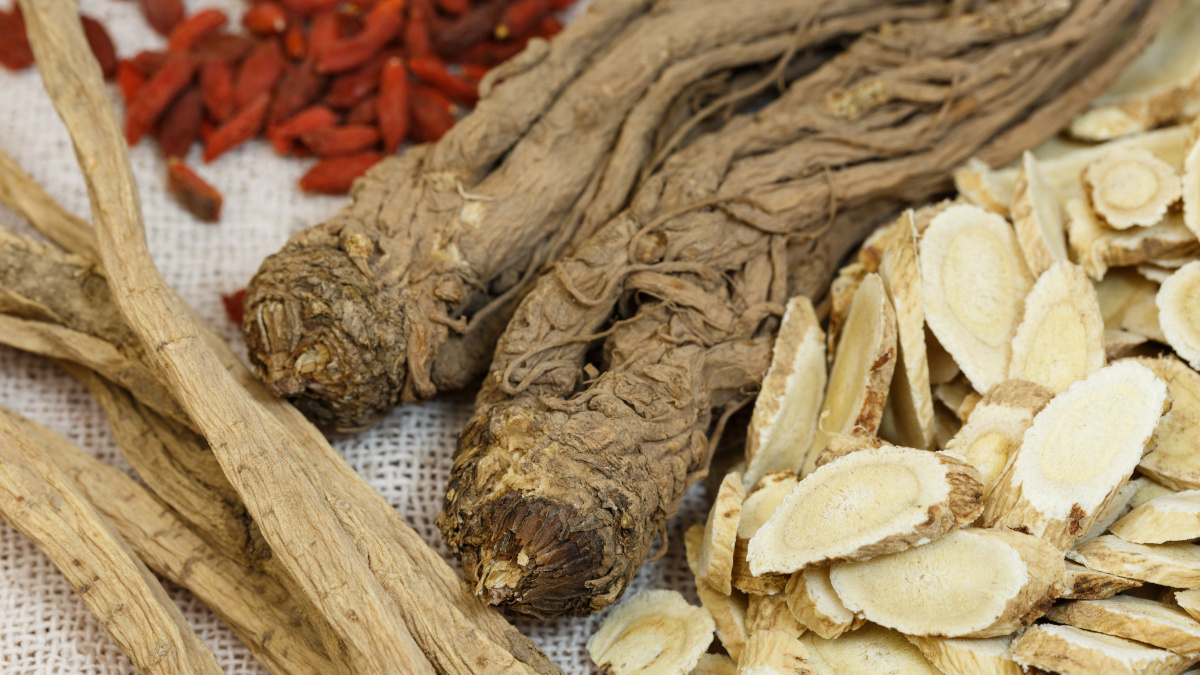
Astragalus: a medicinal plant rich in active ingredients
Belonging to the legume family Fabaceae, astragalus is actually a large genus of plants numbering over 2000 species (1).
The main variety used is the one that grows on the margins of Chinese forests. Indeed, astragalus has been popular for thousands of years in traditional Chinese medicine, for various applications.
Astragalus membranaceus plants are normally left until they’re 4 or 5 years old before being harvested for medicinal use. The plants are uprooted, and the roots - the parts that contain significant amounts of active ingredients - are sliced and dried (2).
It’s these dried astragalus roots which are traditionally used in Ayurveda to prepare infusions. They can also be reduced to a powder for spicing up dishes or juices, and, of course, for putting into supplement capsules.
More recently, manufacturers have developed a process in which astragalosides can be extracted from the root, in order to make concentrates.
Astragalus supplements & the immune system
Astragalus supports the body’s defences in fighting external attacks, a benefit believed to be linked to its high polysaccharide content (3). Between 2012 and 2016, a large-scale study was funded by the European Union to examine the impact of these non-digestible fibres on the immune system. Scientists discovered that polysaccharides were able to act on the genes linked to immunity and on intestinal immune cellules (4).
Many people therefore choose to take an astragalus supplement to support their immune system (such as the product Astragalus extract, a liquid supplement standardised to 16% polysaccharides). Others take one to boost their defences against allergens (with a synergistic formulation such as Aller Fight, which contains astragalus, pine maritime, spirulina ...)
Benefits of astragalus for the heart
Astragalus is also rich in the powerful polyphenols called flavonoids. In vitro studies have demonstrated astragalus’ ability to inhibit lipid peroxidation in the myocardium by 40% (5).
Its high polysaccharide content also means it has an effect on insulin receptors, potentially helping to reduce levels of blood sugar, triglycerides and lipoproteins (6).
In this way, astragalus can help to protect cardiac function and maintain normal blood pressure.
Astragalosides to combat ageing
Astragalus has powerful antioxidant properties and is recognised for playing an active role in rejuvenating the skin and helping to maintain its suppleness and elasticity (7).
Certain studies have focused on the ability of one of astragalus’ compounds, astragaloside IV, to act on telomerase, the telomere-shortening process that contributes to cellular ageing (8).
That’s why some individuals keen to delay the effects of ageing supplement with astragaloside IV (by taking the product Astragaloside IV 98%, standardised to 98% astragaloside IV). A very popular variant is cycloastragenol, another astragalus molecule with a similar structure to that of astragaloside IV (see the supplement Cycloastragenol).
Which adaptogens combine well with astragalus supplements?
Astragalus is more generally a tonic which supports physical and mental well-being. It is also classified as an adaptogen (in other words, it increases the body’s resistance to stress). Indeed, astragalus has been used for thousands of years in Ayurvedic medicine primarily for its adaptogen benefits (9).
To enhance these adaptogenic effects, astragalus can be taken in synergy with other similar compounds, such as Rhodiola rosea, ginseng or ashwagandha (a combination offered, for example, in the supplement Adaptix).
Astragalus: any contraindications?
There are no real contraindications associated with astragalus, other than the possibility, at very high doses (more than 28 grams a day!), of a paradoxical immunosuppressant effect..
As astragalus taken at reasonable doses actually acts as an immunostimulant, it could potentially have an adverse effect on those either suffering from auto-immune diseases or who have recently undergone a transplant.
Because of a lack of relevant data, astragalus is not recommended for women who are pregnant or breastfeeding.
Apart from in these specific instances, astragalus supplementation poses no risk to health. It’s important, however, to follow the dose recommended by the manufacturer, which relates to the strength of their particular product.
SuperSmart ADVICE
References
- KASHYAP, Shivani, SAHU, Chandan Kumar, VERMA, Rohit Kumar, et al.Taxonomic application of macro and micro morphological characters of seeds in Astragalus L.(Galegeae, Fabaceae) in India. Phytotaxa, 2021, vol. 502, no 2, p. 191-207.
- FU, Juan, WANG, Zenghui, HUANG, Linfang, et al.Review of the botanical characteristics, phytochemistry, and pharmacology of Astragalus membranaceus (Huangqi). Phytotherapy Research, 2014, vol. 28, no 9, p. 1275-1283.
- LIU, Qing-yang, YAO, Yong-ming, ZHANG, Shu-wen, et al.Astragalus polysaccharides regulate T cell-mediated immunity via CD11chighCD45RBlow DCs in vitro. Journal of Ethnopharmacology, 2011, vol. 136, no 3, p. 457-464.
- https://cordis.europa.eu/article/id/150431-dietary-fibres-to-boost-the-immune-system/fr
- CHEN, G. R., LIU, Y., MAO, S. Z., et al.The effect of Astragalus membranaceus (Fisch) bge. on lipid peroxidation and NO level of myocardium from rats with diabetic nephropathy. Zhongguo Ying Yong Sheng li xue za zhi= Zhongguo Yingyong Shenglixue Zazhi= Chinese Journal of Applied Physiology, 2001, vol. 17, no 2, p. 186-188.
- DENZLER, Karen, MOORE, Jessica, HARRINGTON, Heather, et al.Characterization of the physiological response following in vivo administration of Astragalus membranaceus. Evidence-based complementary and alternative medicine, 2016, vol. 2016.
- KIM, Byung-Hak, OH, Ikhoon, KIM, Jung-Ho, et al.Anti-inflammatory activity of compounds isolated from Astragalus sinicus L. in cytokine-induced keratinocytes and skin. Experimental & molecular medicine, 2014, vol. 46, no 3, p. e87-e87.
- ENUKASHVILY, N. I., SKAZINA, M. A., CHUBAR, A. V., et al.The Effect of the Geroprotectors Astragaloside IV, Cycloastragenol, and Timovial–Epivial Peptide Complex on Telomere Length and Telomerase Activity in Human Mesenchymal Stromal Cells and Senescent Fibroblasts. Cell and Tissue Biology, 2020, vol. 14, no 2, p. 83-90.
- WINSTON, David. Adaptogens: herbs for strength, stamina, and stress relief. Simon and Schuster, 2019.
Keywords
3 Days
Order was shipped on time and packaged…Wonderful Jobs!
Order was shipped on time and packaged excellently.
DMHoge
9 Days
great products and prices
great products and prices
Marie
15 Days
Easy to navigate site
Easy to navigate site, had what I was searching for, good price. easy order-check out
James Tucker
21 Days
My skin is clearing up nicely!
Pretty good for my skin so far.
Christian
24 Days
The new packaging is excellent
The new packaging is excellent - finally! No more squashed boxes and torn envelopes.
GORAN
24 Days
Great Product
Great Product
Larry Garrett
29 Days
Quick shipping
Quick shipping; good price. No issues!
Mary McCarty
30 Days
Thr product is very good and is helping…
Thr product is very good and is helping me on my health. Then is always on time
LUGO Luz
33 Days
Buying was fine
Buying was fine. I had problems with the website not recognizing my login info, and had to call to get it fixed. Other than that, everything was good.
David S. Clark
33 Days
Your super maca and super ginseng are…phenomenal
Your super maca and super ginseng are phenomenal supplements that compliment each other when taking them together. Fantastic feeling of well-being and lots of mid day energy without the crash.
Keith Mason
36 Days
I have had amazing results with every…
I have had amazing results with every supplement I've purchased. I am extremely satisfied with this company
kirstin Torres
36 Days
Fine products
Fine products . They are on the leading edge of online supplements. The only issue -so far-is they sometime run out of subscription items.
Jason Argos
38 Days
The ordering process is very user…
The ordering process is very user friendly and the products always come in a timely manner.
CARTER Rhonda
40 Days
The price for Dr
The price for Dr. Pero's AC-11 is reasonable and in line with his views. (my former colleague). Keep it pure.
CAMPBELL Clayton
42 Days
Right on every time.
Right on every time.
Arthur Nicholas


